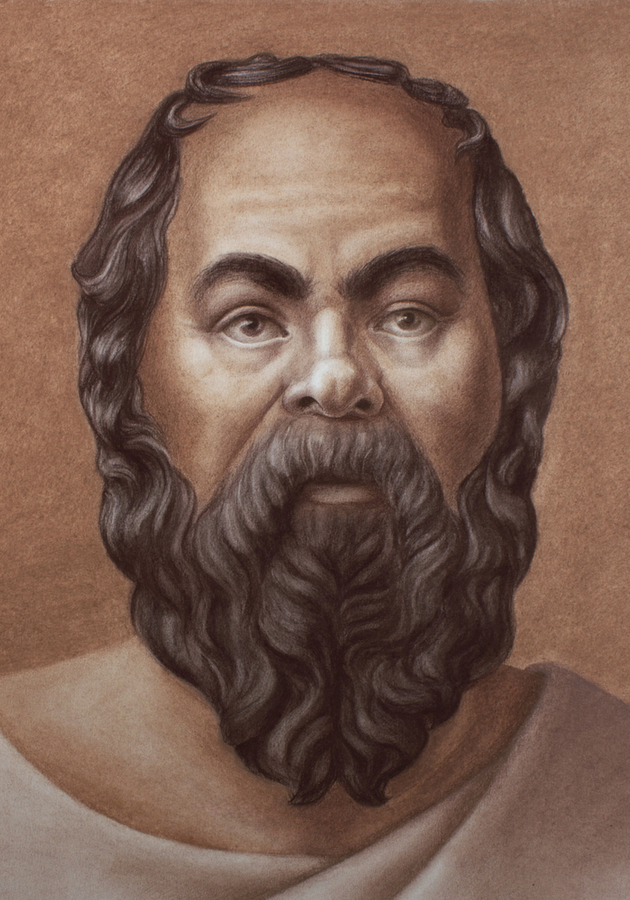There comes a time in life when someone you know loses someone they love. What do you do? What do you say? How do you offer them the much necessary support?
As difficult as it is to answer these questions, there is one that is even more heartbreaking: how do you move on with your life if that person is you?
Facebook’s COO, Sheryl Sandberg, one of the most successful women alive and a happy wife and mother of two, watched her life crumble into pieces when, one day, her husband Dave Goldberg suddenly died while the two were on vacation in Mexico.
As she says, going through this loss and trying to find a way to help her children deal with the unbearable sadness will always be the toughest challenge that she had ever faced.
After finally coming out of the crisis, she decided, with the help of her friend Adam Grant, to document some of the most intimate moments of her journey through grief and pain, and share with the world all the things that her misfortune had helped her learn about coping with loss.
Option B—a book about facing adversity, building resilience, and finding joy—is the result of this endeavor. And we have picked out, just for you, its most important bits.
The death of Dave Goldberg
We have all suffered—or will, at some point in time—some devastating loss, one so unbearable that suddenly we’ll find ourselves craving for the past and dreading the future.
Whether we like it or not, however, life goes on, and the fight we must win at these moments is the one we are unwilling to participate in: finding enough strength and energy to not be left behind.
We cannot stop time; we cannot stop the world from turning. Life happens everywhere around us, no matter what happens to us, and we do not enjoy the luxury to isolate ourselves and stay away from everything. We have to learn how to cope with, how to let life flow through us like a river and wash away the agony and the heartaches.
Eleven years after they married, Sheryl Sandberg and Dave Goldberg left their two kids with their grandparents at home and went on a vacation in Mexico, where they were invited to the celebration of their friend Phil Deutch’s fiftieth birthday.
On Friday, sometime before lunch, fatigue overcame Sheryl, and she stopped playing “Settlers of Catan” on her iPad by the pool. “I’m falling asleep,” she whispered, not knowing this would be the last thing she would ever say to her husband Dave.
Dave had expressed his interest to go to the gym, and that’s where Sheryl supposed he was when she woke up and took a shower. However, when Dave didn’t rejoin the group afterward, Sheryl and Dave’s brother Rob went running to the gym. There, they found him lying on the floor, his face slightly blue and turned to the left, a small pool of blood under his head.
They called an ambulance and Sheryl started giving him CPR. But it was evident during the ride to the hospital that the situation was already past the point of no return. A friend of Phil came over to Sheryl, kissed her on the cheek, and said, “I’m sorry for your loss.”
Sandberg felt the most profound and unbearable pain of her life.
When Option A is not available…
“Grief is a demanding companion,” writes Sandberg, before explaining how in the days after Dave’s death, grief was always beside her, not just below the surface but on the surface as well, “simmering, lingering, festering.”
Then, like a wave, the grief would rise up and pulse through Sheryl’s body, as if it was going to tear her heart right out of her. “In those moments,” she says, “I felt like I couldn’t bear the pain for one more minute, much less one more hour... I was in ‘the void’: a vast emptiness that fills your heart and lungs and restricts your ability to think or even breathe.”
In the worst of this void, about fifteen days after Dave’s death, Sheryl got a letter from an acquaintance in her sixties. She had suffered a similar loss herself and wrote to Sheryl to offer some advice of comfort.
Better yet, she wished she could do that. “Try as I might, I can’t come up with a single thing that I know will help you.”
Though written with the best of intentions, this letter destroyed Sheryl’s hope that the pain would one day disappear completely. She started feeling the barrenness of the void even more; the nothingness closing in on her from every side; the years, endless and empty, stretching before her.
And that’s when she called a friend of hers, Wharton professor and psychologist Adam Grant, to ask him for some advice. Recognizing the despair in her voice as she read the letter to him, Grant immediately booked a flight and went to Sheryl to comfort her in person.
He wanted to tell her face-to-face that there is a way out, that she could and would recuperate, and that it is her duty to find the necessary strength as soon as possible for the sake of her children.
By six months, he told her, more than half of the people who lose a spouse, are past the stage of “acute grief.” Happiness would come again, he said.
Weeks after losing Dave, Sheryl found herself talking to Phil Deutch about a father-kid activity. They came up with a plan: someone needed to “fill in for Dave.” “But I want Dave,” Sheryl cried to Phil.
He put his arm around her and said : “Option A is not available. So let’s just kick the hell out of Option B.”
Life is never perfect, reminds us Sheryl, and we all have to live some form of Option B. And when that is the case, kicking the hell out of it is the best thing we can do.
Beware the “three P’s”
After spending decades studying how people deal with setbacks, positive psychologist Martin Seligman discovered that, almost always, the journey to recovery is inhibited by these three P’s:
• Personalization: the conviction that it is all your fault
• Pervasiveness: the conviction that the event will negatively affect everything else in your life
• Permanence: the conviction that things will never improve.
Sandberg was no exception: she went through all these stages. Believing that her husband had died after falling from the exercise machine, she started blaming herself for not keeping a closer eye on him.
Sheryl’s brother, a neurosurgeon, tried comforting her by telling Sheryl that there is no way a man could die by falling from such a small height, but Sheryl wouldn’t listen.
It changed nothing when the second autopsy proved him right: now Sheryl started blaming herself for not doing enough to change Dave’s diet and habits since the cause of his death was now proven to have been cardiac arrhythmia caused by undiagnosed coronary artery disease.
And it didn’t matter what Sheryl was doing: the pain reached every part of her life. She couldn’t work, she couldn’t sleep, she couldn’t cast a look upon her children without bursting into tears.
The pervasiveness of the agony was of such kind that Sheryl was absolutely sure that the feeling would never go away.
Fortunately, it did.
And this is how.
Kicking the elephant out of the room (aka overcoming the “mum effect”)
After her husband’s death, Sandberg was astonished to see how often her colleagues and friends avoided asking her how she was doing.
It didn’t take long for her to realize that it wasn’t because they didn’t care. On the contrary: they tended to avoid the subject of death, believing that sufferers would rather not speak of their pain.
Psychologists refer to this avoidance as the “mum effect.”
The “mum effect” is the reason why many people who want to express sympathy remain silent or talk about unrelated matters, and why many sufferers of a loss who want to tell the stories of their loved ones are unable to recover more quickly.
Feeling lonely one night, Sandberg bravely posted on Facebook her opinion that people should stop talking about sports and weather when someone’s beloved has died.
Moreover, she said, they should stop asking questions such as “How’s it going?” or “How are you?”—routine questions often posed without thinking—expecting answers not unlike “Good, thanks, how are you?”
Instead, people should ask, “How are you today?”, possibly the simplest way to express sympathy with someone in pain, because it not only shows that the questioners understand the daily up-and-down struggle of one coping with tragedy, but it also allows the sufferer to express his/her real feelings.
After all, some days are better than others, while some are just unbearable, and this slight difference in the question asked makes this known from the outset.
The reaction to Sheryl’s post was warm and positive. Strangers started sharing their stories; friends began to talk openly and started expressing empathy in the most humane ways possible.
Some other coping strategies and mechanisms
In addition to the main ones, summed up above, Sandberg and Grant share quite a few additional strategies of coping and expressing empathy throughout the pages of Option B. We cover five of them below.
#1. Try not to ask, “Is there anything I can do?”—just do it.
Instead of asking people in pain if they needed something, just do the thing you think they’d need. Holding out a helping hand encourages people to open up, regardless of whether they have asked for help or not. The worst thing you can do is disappear.
#2. Have a go at journaling and acknowledge your “little wins.”
When all is lost, you need a reminder that you can still win. Recording small everyday triumphs (whatever they are) is good for your self-confidence, and helps you cope better with your loss. So, start a journal and start listing all of your “wins” in it, no matter how small insignificant they may seem.
#3. “Take things back” from your loss.
Do not waste your life by shutting happiness out of it. Allow it to enter your life once again. Rediscover fun by doing things that are interesting to you. It doesn’t matter whether you do them alone or with someone else, and it matters even less whether you have done them with your sadly departed loved ones before. They would have wanted you to be happy. You owe them that.
#4. Respect your children’s unique sensibilities
Sandberg thought that her children would be unable to rise above losing their father. Instead, they recovered very fast. Don’t ever forget that children’s coping mechanism is different from the one in adults; as a result, they can recover more easily and more naturally. Don’t intervene. Instead, take care of your children by listening to them, valuing their ideas, and letting them shape their responses to the tragedy by themselves.
#5. Acknowledge that you can learn how to love again.
After losing a loved one, letting yourself look for affection someplace else can be a serious problem. Dating can (and probably will) make you feel guilty. And it won’t help that your friends won’t be able to picture you with someone else. However, you have to allow yourself to feel love again. Moving on does not mean that you have stopped respecting and caring for your late partner. It simply means that you have allowed yourself to live again.
Final Notes
More than just a memoir and never a trite self-help manual, Sheryl Sandberg and Adam Grant’s Option B is a remarkable book, both touching and helpful.
It aims to help not only the ones who’ve lost someone, but also the ones who don’t know how to comfort them and express their support, and, as such, it is quite unique and inspiring.
“As hopeful as it is heartbreaking,” wrote Atul Gawande echoing our first impressions, “this book is not just an absorbing read—It also provides lessons that everyone needs to learn.”
12min Tip
As Nobel Peace Prize winner Malala Yousafzai says reviewing this book: “None of us can escape sadness, loss, or life’s disappointments, so the best option is to find our Option B.” Never forget that.





























